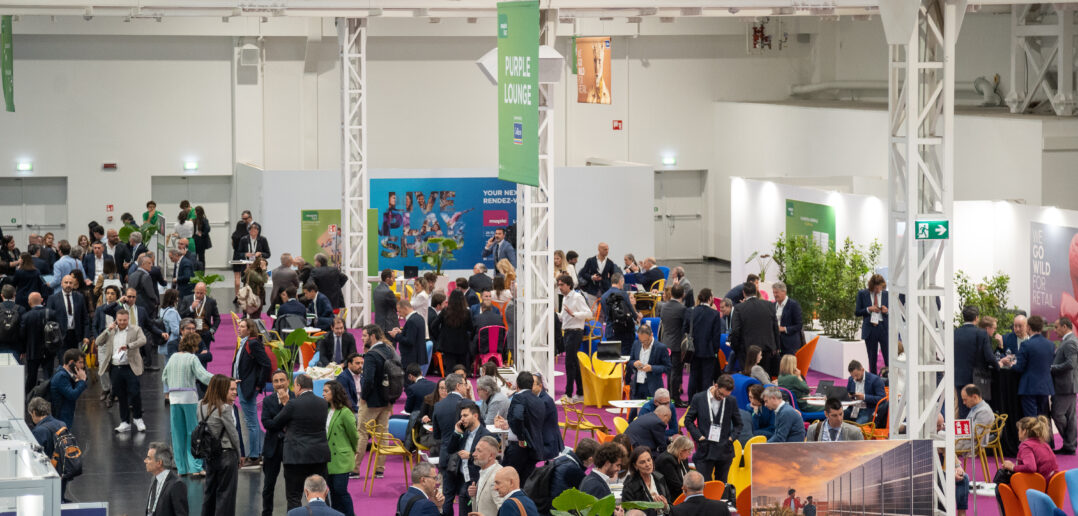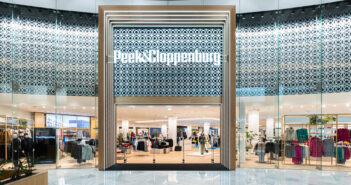As developers and landlords wrestle with environmental challenges, a new Sustainability Lab debuted at MAPIC Italy in Milan May 16-17 and will launch in Cannes later this year. The initiative builds on MAPIC’s long-running sustainability programme and brings together some of Europe’s top sustainability solution providers for retail real estate.
The retail property industry: Growing opportunities for ESG players
The pressure is on for developers and landlords to create more sustainable environments. However, while investors, retailers and consumers are demanding greener and more energy efficient environments, turning an aspiration into an action is not so easy.
With redevelopment of existing centres now a far greater industry than the creation of new shopping destinations, owners are increasingly looking to the circular economy and how they can reduce both used carbon and embedded carbon levels.
For that reason, MAPIC has created a new zone featuring many of the innovators leading the sustainability transformation.
MAPIC has had a green thread running throughout the event for some years and has increasingly put the environment, sustainability and community at the heart of everything that it does. To take this further, in Milan this year MAPIC Italy saw the launch of the Sustainability Lab, featuring six exhibitors: A2A E-Mobility; R2M Solution; Over; Green Energy Service, Solum Photovoltaic Innovation and Deepki.
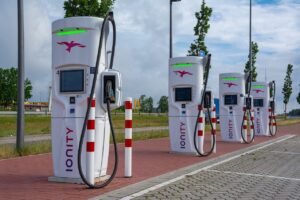
EV charging
And at this year’s MAPIC in Cannes, a larger Sustainability Lab will bring together a broad range of product and service providers, from photo voltaic specialists to EV charging businesses, offering real estate owners and investors solutions to improve their energy and sustainability credentials and explain the certifications available.
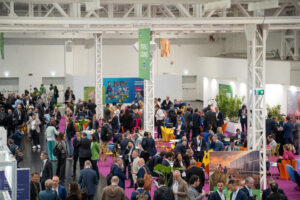
MAPIC Lab
The new exhibition area will bring together ESG players and service suppliers with
dedicated energy efficiency solutions for retail property players. These new partners will guide real estate visitors on their journey to becoming carbon neutral and more ethical.
MAPIC 2023 will showcase solutions such as:
- Energy management and renewable energy
- Low-carbon materials
- Refurbishment and renovation
- Green investment
- Mobility
- Data and ESG performance
- Legal compliance & certification for retail property companies (eg B-corp)
Five hot topics for retail property
1 – ESG in buildings
While the importance of sustainability and ESG is no longer a subject of debate, engagement and practical measures are key to taking them from a cost to a benefit for landlords.
Not surprisingly, these benefits are currently most noticeable in countries where sustainability is highest up the agenda. For example, VIA Outlets’ Oslo Fashion Outlet, 30 minutes outside the Norwegian capital, completed a major car park extension late last year, which also upped the availability of electric vehicle charging points.
This is hugely important in a country where around 75% of new car sales are electric and as a result Oslo Fashion Outlet has expanded from 48 EV charging points to nearer 200.
“The key is to put in the EV charging points that are required now but install the infrastructure for how things are moving, because the direction of travel is very clear,” says Damian Boylan, commercial EV charging specialist at Pinergy in Ireland.
“Consumers and residents are increasingly seeing these services as a community benefit, so we are moving into a time when they provide a marketing benefit for developers and landlords.”
2 – Biodiversity in destinations
Krystyna Rawicz, managing director of UK-based KRA Visionary, adds that providing better infrastructure and biodiversity provides clear benefits for shopping centres and high street retail, especially as the concept of the 15-minute city spreads across Europe.
“Instead of seeing sustainability solutions as another cost or layer of bureaucracy, it’s important that real estate owners see what taking a sustainable approach brings positively to their environments,” she says.
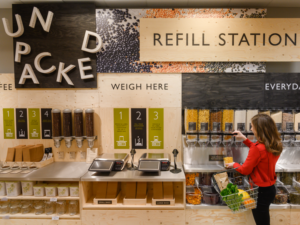
Refill station: John Lewis Partnership
And much of the onus on pushing sustainability will come from investors and developers according to John Lewis Partnership deputy chair Rita Clifton.
“Investors are the ones actually driving the sustainability agenda, for a retailer rather than trying to address everything, instead you find your high points to create differentiation,” she says.
3 – Data and sustainability
One such example is CBRE Group, which in May announced that its property management group had formed a global strategic partnership with Deepki that will bring the Deepki Ready sustainability data-intelligence platform to the commercial properties CBRE manages worldwide.
CBRE has been using Deepki for properties it manages in the UK for more than two years and is now being deployed across CBRE-managed properties throughout Europe, with plans to begin using Deepki in the Americas and the Pacific region as the next step in a global rollout.
“Property owners are increasingly turning to CBRE for help in meeting their decarbonisation and other sustainability goals,” says Emma Buckland, global president of property management at CBRE. “This will help us embed sustainability best practices – and add real value – at properties we manage around the world.”
4- Environmental accreditation
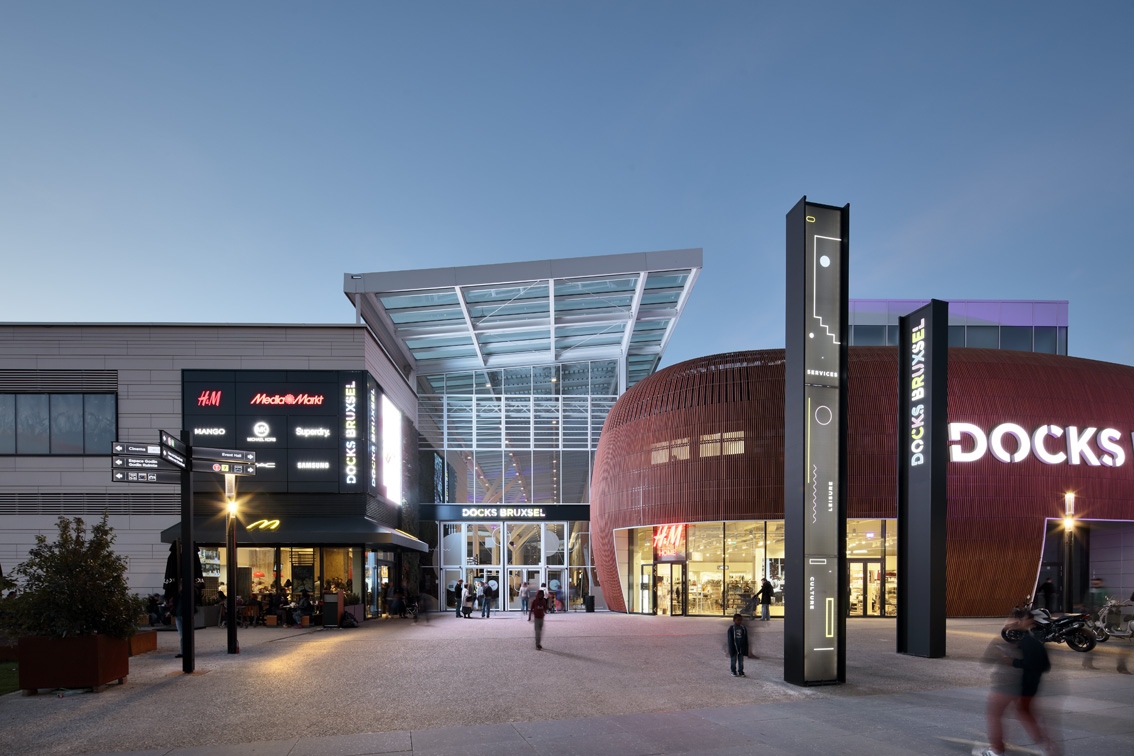
Docks Bruxsel
Meanwhile, Docks Bruxsel in early March achieved a Gold Company certification from CO2logic/South Pole of CO2 Neutral for the complex. In doing so, it became Europe’s first large-scale shopping centre to achieve the accreditation.
A natural ventilation system means that air conditioning is not needed and a large recovery basin allows captured rainwater, once treated, to feed sanitary facilities, cleaning operations and on-site cooling systems.

Solar panel
Green walls are watered using a special rainwater filtering method, and the mall roof houses a pair of beehive houses and 80,000 bees, while 4,500 sq m of solar panels have been installed to help power the site, alongside energy from heat produced by a nearby incinerator. Last Christmas, this infrastructure meant Docks Bruxsel could fill its ice rink with rainwater, and power the facility using 100% green energy, sourced on-site.
5 – The sustainability agenda
And the pressure to source innovative solutions to green retail environments is only growing.
While consumer pressure drove much of the early adoption, the need to reduce energy consumption, provide new services and optimise resources is now mainly being driven by landlords seeking to combine improved sustainability with lower operational costs, plus funds keen to ensure that they do not get stuck with stranded assets.
MAPIC’s Sustainability Lab will therefore provide a new platform to connect providers and real estate professionals as landlords and investors seek to find practical ways to steer a greener path forwards.
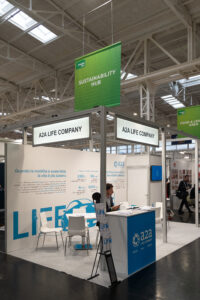
MAPIC Lab

